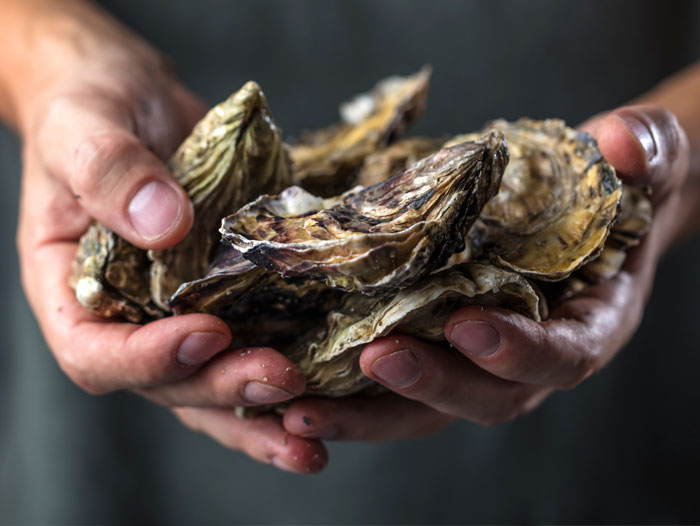UF/IFAS, FDACS to Help Teach Science, Engineering Through Aquaculture
February 24, 2021 | 3 min to read

Ruskin, Fla. – Through a $64,000 grant from the U.S. Department of Agriculture Farm to Schools program, the University of Florida and the Florida Department of Agriculture and Consumer Services (FDACS) will help some Florida K-12 educators who teach science, technology, engineering, math (STEM) and agriculture start or strengthen aquaculture education programs.
To apply for the program, click here and follow the steps. The deadline for applications is March 3.
Educators will participate in a three-day intensive training and skills-building workshop from July 21-23, 2021. Teachers who already have aquaculture programs will also give talks, said Eric Cassiano, an assistant Extension scientist at the UF/IFAS Tropical Aquaculture Laboratory in Ruskin. UF/IFAS and FDACS scientists will train the teachers about fish grown in Florida; most schools that teach aquaculture grow tilapia, cichlids and koi. Teachers will also learn about regulatory issues. In addition to the summer training program, FDACS will award aquaculture systems and supplies to 20 schools, selected through a competitive application and review process.
“This program is important to teachers and students because it provides the information and training required to teach aquaculture and aquaponics concepts to students as well as to maintain an aquaponics system,” Cassiano said. “Often, students will want to learn about aquaculture, but the educator is not trained to do so, nor do they have the necessary equipment. This project provides both.”
“The science and art of aquaculture provides a great platform to teach both STEM and agricultural skills in Florida’s classrooms,” said Florida Agriculture Commissioner Nikki Fried. “I thank UF/IFAS for developing this program and the USDA for awarding the grant funding, and I encourage Florida’s STEM educators to apply before March 3 and help deliver this innovative curriculum to our next generation of STEM, aquaculture, and agriculture leaders.”
The curriculum comes in two parts. One is the lecture session, which most teachers will be able to attend virtually. This provides educators with basic information about aquaculture and existing programs associated with aquaculture. The second part comes when a teacher receives what’s called a “recirculating aquaculture system (RAS),” an aquaponics table and water quality test kit.
Participants will also learn how aquaculture – and an RAS specifically – can be integrated into existing land garden programs and Farm to School activities. For example, schools with existing gardens can expand by creating an uncoupled aquaponics system while used water and fish waste can be utilized to supplement fertilizer.
“An RAS system is important because it recycles the water and converts fish waste into nitrate, which becomes fertilizer for plants within the aquaponics system,” Cassiano said. “These ecological concepts can be viewed first-hand by the students as they monitor the water quality parameters and see the growth in both fish and plants within the system.”
For questions on the program, contact Brad Buck at bradbuck@ufl.edu or 352-875-2641.
About UF/IFAS: The mission of the University of Florida Institute of Food and Agricultural Sciences (UF/IFAS) is to develop knowledge relevant to agricultural, human and natural resources and to make that knowledge available to sustain and enhance the quality of human life. With more than a dozen research facilities, 67 county Extension offices, and award-winning students and faculty in the UF College of Agricultural and Life Sciences, UF/IFAS brings science-based solutions to the state’s agricultural and natural resources industries, and all Florida residents. Learn more at ifas.ufl.edu and @UF_IFAS.
The Florida Department of Agriculture and Consumer Services (FDACS) is the state’s lead aquaculture agency, and coordinates and assists in the development of aquaculture and regulates aquafarms to protect and conserve Florida’s natural resources. Ranked among the top U.S. states for fresh seafood production with over 1,000 commercial aquaculture operations, Florida’s commercial fishing operations supply 84 percent of the nation’s grouper, pompano, mullet, stone crab, pink shrimp, spiny lobster, and Spanish Mackerel. Both the commercial fishing and seafood products industries in Florida provide more than 13,000 jobs and have added-value contributions of over $730 million.
